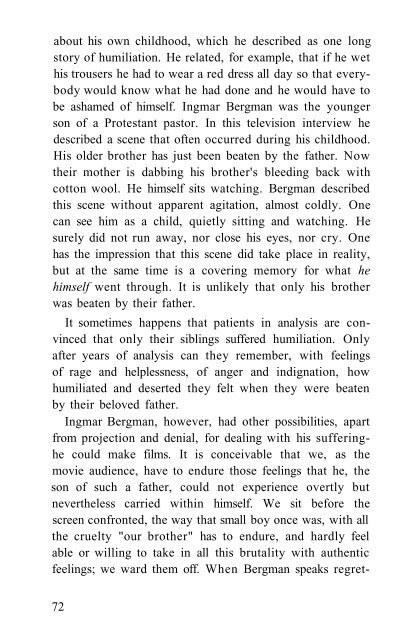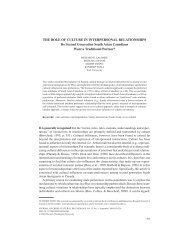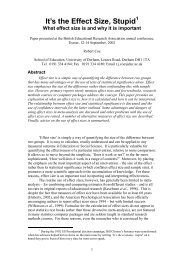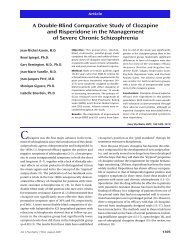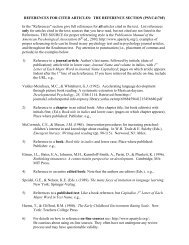The Drama of the Gifted Child (The Search for the True Self)
The Drama of the Gifted Child (The Search for the True Self)
The Drama of the Gifted Child (The Search for the True Self)
Create successful ePaper yourself
Turn your PDF publications into a flip-book with our unique Google optimized e-Paper software.
about his own childhood, which he described as one long<br />
story <strong>of</strong> humiliation. He related, <strong>for</strong> example, that if he wet<br />
his trousers he had to wear a red dress all day so that everybody<br />
would know what he had done and he would have to<br />
be ashamed <strong>of</strong> himself. Ingmar Bergman was <strong>the</strong> younger<br />
son <strong>of</strong> a Protestant pastor. In this television interview he<br />
described a scene that <strong>of</strong>ten occurred during his childhood.<br />
His older bro<strong>the</strong>r has just been beaten by <strong>the</strong> fa<strong>the</strong>r. Now<br />
<strong>the</strong>ir mo<strong>the</strong>r is dabbing his bro<strong>the</strong>r's bleeding back with<br />
cotton wool. He himself sits watching. Bergman described<br />
this scene without apparent agitation, almost coldly. One<br />
can see him as a child, quietly sitting and watching. He<br />
surely did not run away, nor close his eyes, nor cry. One<br />
has <strong>the</strong> impression that this scene did take place in reality,<br />
but at <strong>the</strong> same time is a covering memory <strong>for</strong> what he<br />
himself went through. It is unlikely that only his bro<strong>the</strong>r<br />
was beaten by <strong>the</strong>ir fa<strong>the</strong>r.<br />
It sometimes happens that patients in analysis are convinced<br />
that only <strong>the</strong>ir siblings suffered humiliation. Only<br />
after years <strong>of</strong> analysis can <strong>the</strong>y remember, with feelings<br />
<strong>of</strong> rage and helplessness, <strong>of</strong> anger and indignation, how<br />
humiliated and deserted <strong>the</strong>y felt when <strong>the</strong>y were beaten<br />
by <strong>the</strong>ir beloved fa<strong>the</strong>r.<br />
Ingmar Bergman, however, had o<strong>the</strong>r possibilities, apart<br />
from projection and denial, <strong>for</strong> dealing with his sufferinghe<br />
could make films. It is conceivable that we, as <strong>the</strong><br />
movie audience, have to endure those feelings that he, <strong>the</strong><br />
son <strong>of</strong> such a fa<strong>the</strong>r, could not experience overtly but<br />
never<strong>the</strong>less carried within himself. We sit be<strong>for</strong>e <strong>the</strong><br />
screen confronted, <strong>the</strong> way that small boy once was, with all<br />
<strong>the</strong> cruelty "our bro<strong>the</strong>r" has to endure, and hardly feel<br />
able or willing to take in all this brutality with au<strong>the</strong>ntic<br />
feelings; we ward <strong>the</strong>m <strong>of</strong>f. When Bergman speaks regret-<br />
72


